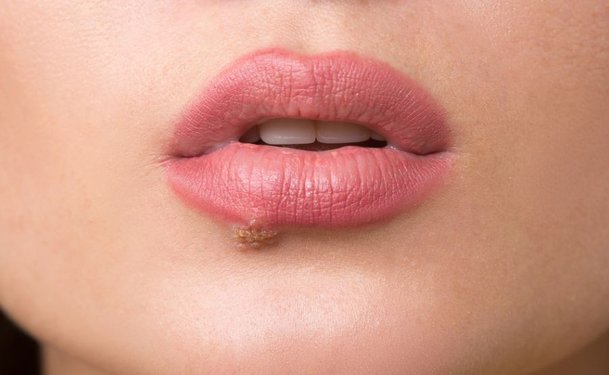Most people have heard of herpes, but many do not fully understand the condition. Learning more about herpes and risk factors associated with it may be helpful in preventing the spread of the disease from one patient to another.
Causes of Herpes
Herpes is caused by the viruses herpes simplex 1 and herpes simplex 2. Cold sores found around the mouth and lips are usually caused by herpes simplex 1, while genital herpes are usually caused by herpes simplex 2. The transfer of bodily fluids may spread these viruses from one person to another. Avoiding the transfer of bodily fluids is the key to reducing the risk of herpes.
How Herpes is Spread
Kissing, sharing eating utensils or cups and sharing personal items like toothbrushes with individuals who have cold sores around the mouth or lips may spread the virus. Oral sex and other sexual contact may spread herpes as well. Genital herpes may be spread through intercourse, oral sex, anal sex and other activities in which bodily fluids are exchanged. Ask your sexual partners if they have sexually transmitted diseases (STDs) such as herpes and avoid sexual contact with those who do. Always wear a condom during sexual contact, as not all people are truthful when asked if they have any STDs. Condoms are thought to reduce the risk of herpes, although they do not completely eliminate the risk. Research is still being conducted to determine the effectiveness of condoms in preventing the spread of herpes and other STDs.
What Do Herpes Sores Look Like?
Herpes causes blisters on the genitals or around the mouth area. Herpes may also be found on other areas of the body like the fingers, cheeks and nose, although most patients with herpes will have blisters around the genitals or mouth. The blisters eventually break, crust over and heal. Herpes may be particularly painful and uncomfortable when they break and become sores. Other symptoms may include rash or tiny bumps around the affected area. Some people experience pain during urination or a fluid vaginal discharge. Patients may also experience itching, burning or tingling before a flare-up. Sharp pains in the area may also be present. The first flare-up of herpes is usually the worst and the duration and frequency of flare-ups may decrease with time.
Treating Herpes
Herpes may be treated using over-the-counter medications and topical creams or ointments. Prescription medicines or intravenous medication may also be used. Talk to a doctor about possible treatments and when you should take medicine or apply creams. For more information about herpes, its causes, symptoms or treatments, contact a qualified, licenses physician in the area.



